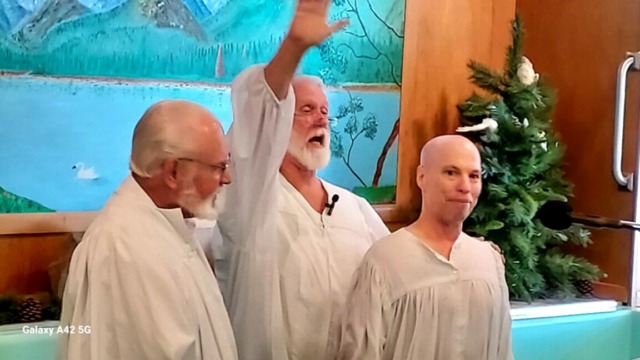Amy Gane – Greeley, Colorado … My husband and I come from very different backgrounds. His dad came to the United States from Australia to pursue his Ph.D. His mom was a piano teacher, and his brother is a professor at Andrews University, educating the next generation of pastors in Old Testament languages. He was expected to go to college, and he went on to get his master’s as well.
My family cares a lot about cattle. Horses and cattle. My sister and I have favorite quote: “money not spent on cattle is like dust in your mouth.” Up before daylight, my entire extended family grew up believing you feed the livestock first. My family reads voraciously but we value cattle, horses, and pickup trucks.
I remember the first encounter between my ranching family and my husband’s very academic family. It was Christmas, and my mom’s house was very crowded. My brother-in law takes a real interest in everyone around him, and he had a lively conversation with my uncle dressed in his Wranglers, his mustache waxed, and wearing his bolo tie.
They enjoyed each other, but my brother-in law commented that he hadn’t expected my uncle to be so well read. I asked him what he thought ranchers did all winter long. I mean, we can read, its just sometimes livestock journals and a lot of history.
I used to feel kind of awkward about this, as though my family were low class and maybe a little bit backwards, until one day I’m reading the Bible. It began to dawn on me that I’m reading the writings of a shepherd.
David was a shepherd before he was king. His experience of God came to him firsthand while out tending his father’s flocks. He wrote songs to God, some of the Psalms, while a very young man, probably a teenager, living rough and outside with animals.
Moses was raised to be the heir of all Egypt, educated in the ways of the court. But when he fled from there after murdering an Egyptian, God sent him to live among herdsmen, the nomadic ranchers of Midian. There it was where God first spoke to him out of the burning bush.
The prophet Amos was a shepherd and harvested figs. Amos wrote, Surely the Lord will do nothing, but he reveals his secrets unto his servants the prophets (Amos 3:7), a verse with some interesting applications in our church. But he also wrote, I was no prophet, neither was I a prophet’s son; but I was a herdsman, and a gatherer of sycamore fruit [wild figs] (Amos 7:14). He was a man living very much in the natural world.
Peter, James, and John were fishermen, out at night with nets on the water in the moonlight. They were Jewish, probably they knew the prophecies, but they were more or less normal guys with a very hard and stinky job. The greatest book of all time [in my view] is probably the Gospel of John, written by this same John, the young fisherman. But he encountered God, he wrote about it, and then he wrote a quarter of the New Testament!
The greatest single message ever given to humankind was delivered directly to some shepherds outside the town of Bethlehem: Fear not: for, behold, I bring you good tidings of great joy, which shall be for all people. For unto you is born this day in the city of David a Savior, which is Christ the Lord (Luke 2:10-11, KJV). Literally shepherds, the guys out protecting the flock and helping animals give birth. They are not even named in the Scripture, just some field hands.
And that’s the point; God chose to speak to people who were out working in the fields with animals, or maybe those were just the ones who could listen. They saw God in his creation every day in the birth of lambs and in the provision of grass for their cattle. And to this day, theologians study the works of these farmers and fishermen. The greatest scholars are reading the writings of those who just talked to Him while out in a field.
Whoever you are, whatever job you are doing, God is available to you. He speaks to people in the lowest jobs or in the highest. He speaks to us, very often though, when we are outside among the things he created.
We are very concerned with people’s position in life, but the Bible is very clear that “God is no respecter of persons,” which means he doesn’t rank us based on our job, our income, our genetics, or our wealth. Make no mistake, the shepherds to whom the angels revealed the greatest news of all time, were field hands, “keeping watch over their flocks by night.”
Merry Christmas!
—Amy Gane, DVM, is an active member of The Adventure Seventh-day Adventist Church in Greeley, Colorado. Republished with permission. Photo by Unsplash.




